Following the latest Hilton Head alligator attack, here are safety tips to know in SC
Have you ever thought gaining knowledge of some alligator safety tips might just save your life next time you decide to take a walk or vacation in South Carolina?
If so, you were correct. It just might.
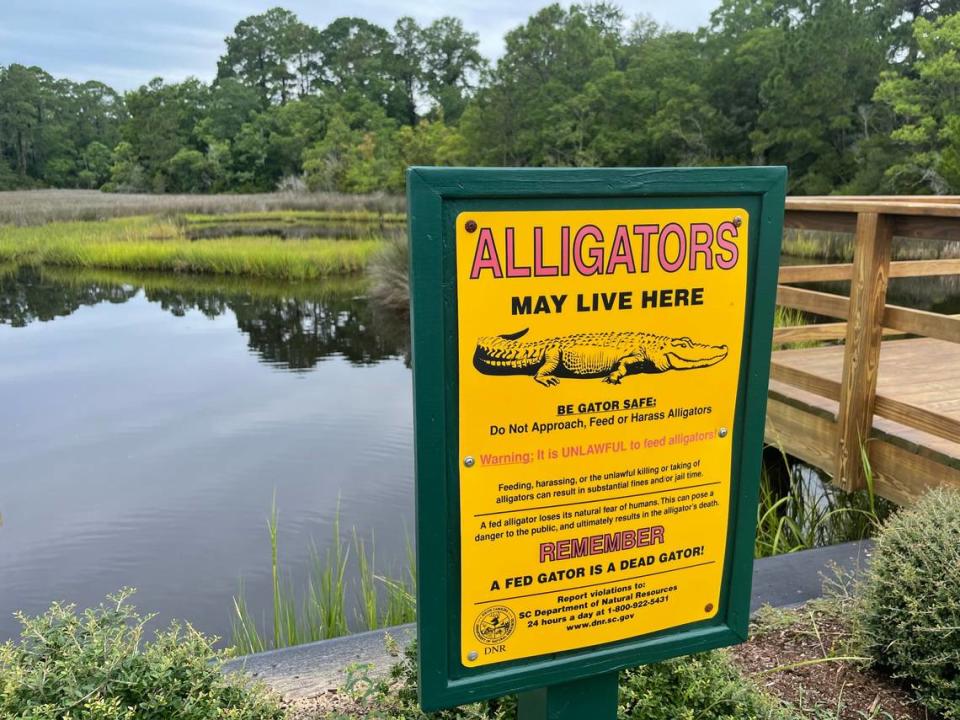
Tuesday morning, Beaufort County officials responded to the scene of a possible alligator attack, which resulted in a fatality. It led to the removal of a 9-foot alligator from a neighborhood lagoon in the Spanish Wells private community after the 69-year-old woman was attacked while walking her dog.
This comes after two fatalities from alligator attacks were recorded in South Carolina last year.
One of these fatalities took place in a Myrtle Beach neighborhood in June 2022. The other was also in Beaufort County but was located in the Sun City neighborhood and involved an 88-year-old woman who was attacked by an alligator at a lagoon near her home in August 2022. This alligator was also reportedly 9 feet in length.
Following the rise in alligator attacks within South Carolina, is it important that every resident and visitor is aware of certain steps they can take to protect themselves and prevent a potential alligator attack from occurring.
Here are four safety tips when inhabiting an environment that is known to be shared with alligators. Remember, in certain areas of South Carolina an accidental alligator encounter could be at a local park, at a resort, around a neighborhood pond or lagoon, on your driveway or even in your own backyard.
1. Never feed an alligator. Ever. When alligators are fed by people they start to associate people with food and will be more likely to approach you or others. Feeding alligators in South Carolina is also illegal.
2. Be aware of your surroundings. In serious, and oftentimes fatal, alligator attacks, the victim was unaware of the alligator before the attack. Alligators are ambush predators and will generally not be noticed before they attack. Although most attacks do occur in water, alligators have attacked humans and pets on land. When this happens, people who are walking their pets often are the secondary target if the pet escapes. Alligators can quickly become conditioned to humans and can be dangerous, especially to children, when they inhabit the same space as humans. Alligators that are fed by humans often become aggressive and must be removed, according to the South Carolina Department of Natural Resources on American Alligators in the Palmetto State.
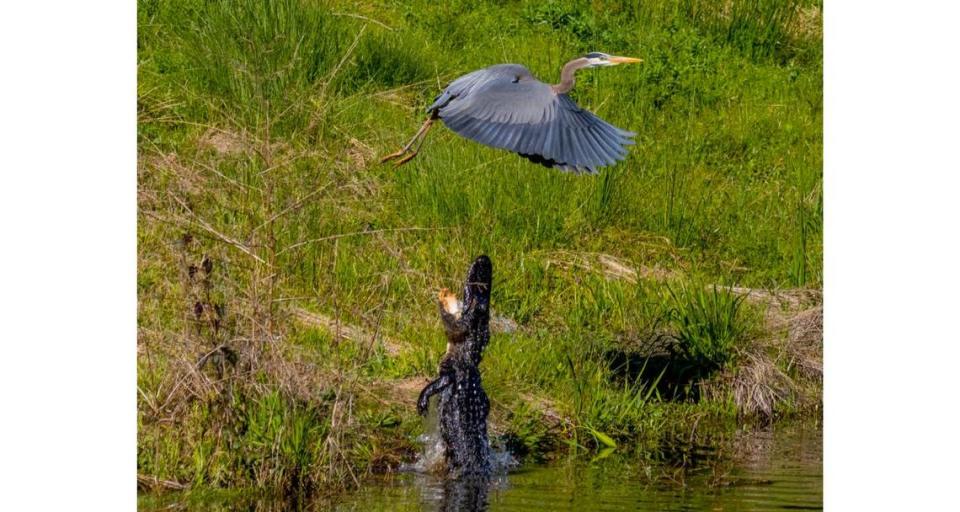
3. Keep your distance. Along with avoiding areas alligators may be in to avoid an ambush attack, they are also territorial. Although alligators are generally pretty sedentary, usually basking in the sun or lurking in the water, they may act to chase a person if they are disturbed, territorial of the area, protecting their nests or hungry. Anything could set them off. Alligators can stalk their prey almost invisibly with only their eyes above water and moving soundlessly, so they can easily remain undetected before they attack. Alligators can swim at quick speed, and can even run on land in short bursts. When an alligator is in the area or if you find yourself near a body of water in the Lowcountry, it’s best to keep your kids, yourself and your pets away from neighboring bodies of water, even if they seem empty.
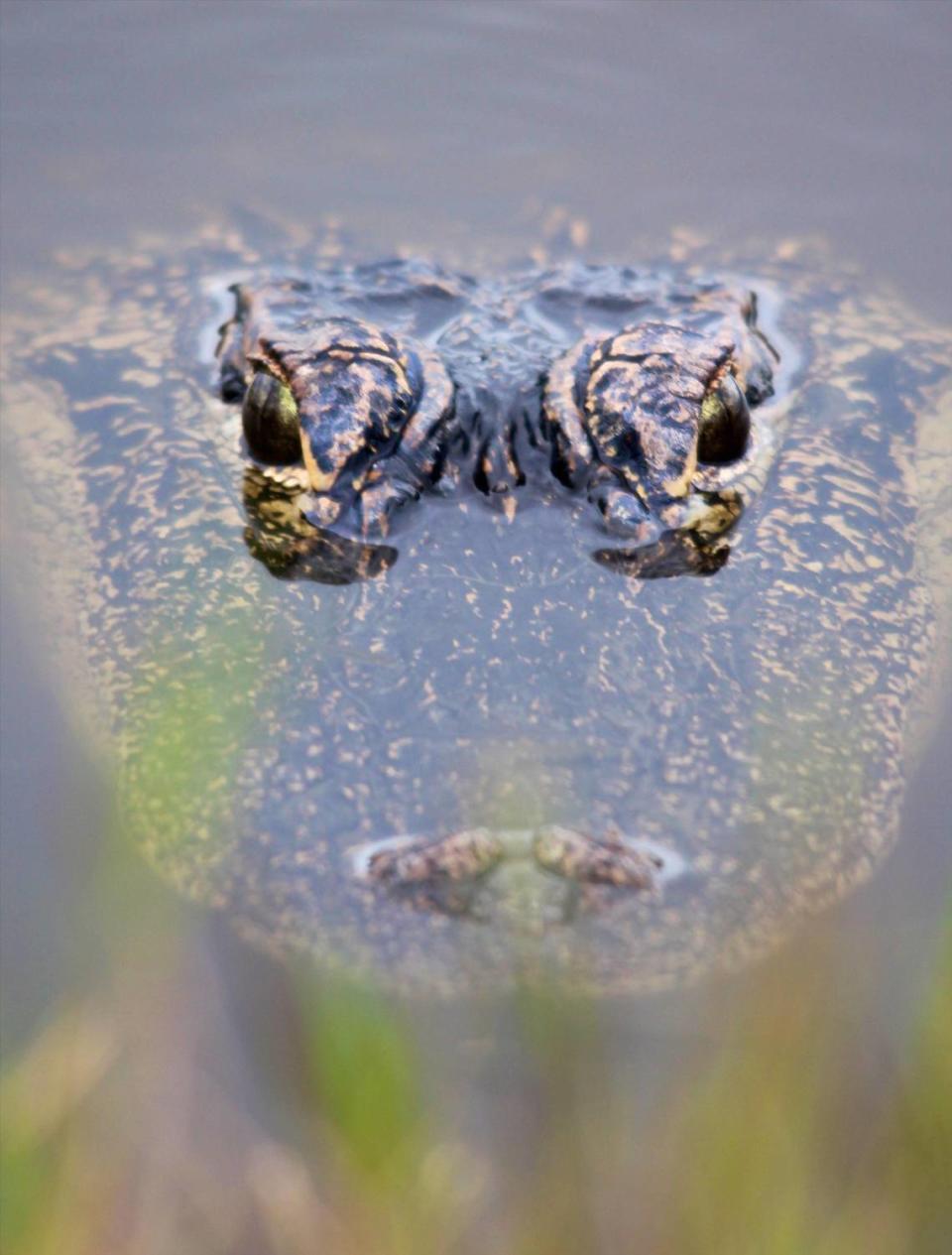
4. Maintain a safe distance. A safe distance from an adult alligator should be maintained at about 60 feet. If the alligator hisses or lunges at you, you are too close, details the University of Georgia’s Savannah River Ecology Laboratory. This means avoid fishing in ponds or lagoons and keep a safe distance from them while golfing or taking a walk. Alligators, even large ones, can go unnoticed on golf courses or the edge of nearby water when basking on inclined banks. These can make it quite easy for an unsuspecting person to accidentally walk up to one of these massive reptiles without any knowledge.
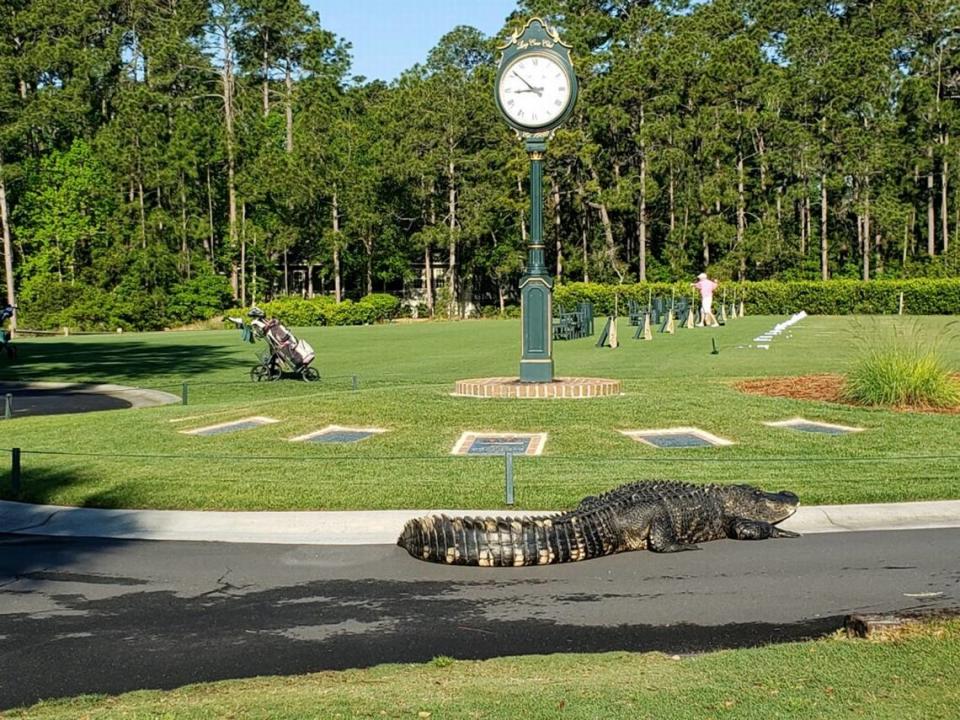
If you find yourself getting attacked, know these tools
Alligators have powerful jaws and will twist and barrel roll when they attack.
“Alligators often seize an appendage and twist it off by spinning,” reported SCDNR.
“If an alligator bites your arm, it may help to grab the alligator and roll with it to reduce tearing of the arm. Strike the nose of the alligator hard and often, and try to gouge the eyes. If at all possible, do not allow the alligator to pull you into the water.”
Here’s where to call if there is an aggressive alligator in your neighborhood
Once alligators become too familiar with people, which could be by being fed or maintaining close proximity, they easily lose their fear of people. In many cases, this necessitates their removal for the safety of anyone who would potentially be within the alligators proximity.
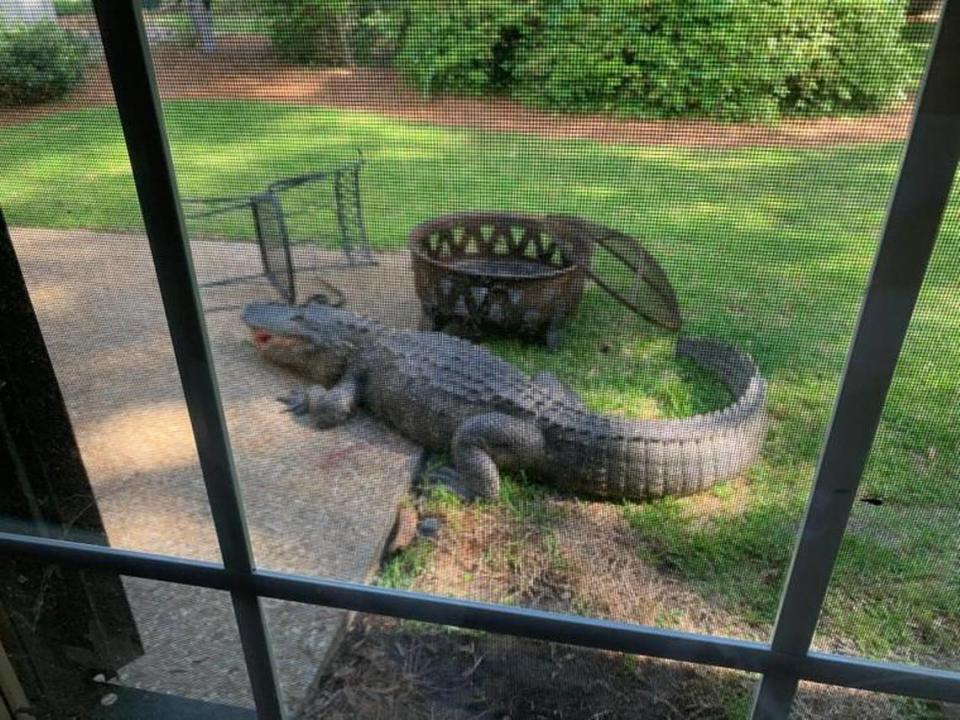
However, all removed alligators with aggressive tendencies are exterminated per South Carolina State Law, as relocation is illegal due the creatures’ strong homing instinct.
If a neighboring alligator is exhibiting aggressive behaviors around your home despite following the above safety measures, you can contact your local SCDNR office for help. Nuisance alligator complaint numbers per county can be found online at https://www.dnr.sc.gov/wildlife/gatorc.html#:~:text=If%20an%20alligator%20is%20causing,you%20have%20a%20nuisance%20alligator.

